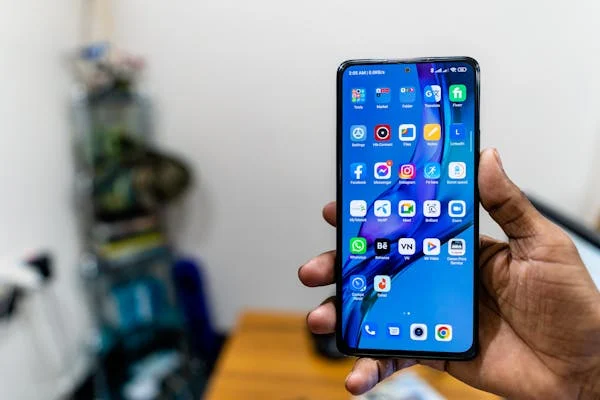The Future of Mobile Tech: Emerging Trends for the Next Decade
Mobile technology has transformed our lives, connecting people, enabling businesses, and driving innovation across industries. As we move into the next decade, the evolution of mobile tech promises even more groundbreaking advancements.
From hardware to software, let’s explore the emerging trends that will shape the future of mobile technology.
1. The Rise of 6G Networks
While 5G is still rolling out globally, researchers are already exploring 6G technology. Expected to launch around 2030, 6G promises speeds up to 100 times faster than 5G, with ultra-low latency and seamless connectivity. This could revolutionize areas like real-time augmented reality (AR), virtual reality (VR), and Internet of Things (IoT) applications, enabling smarter cities and industries.
2. AI-Driven Personalization
Artificial intelligence (AI) will play an even bigger role in personalizing user experiences. From intelligent voice assistants to predictive app usage, AI will anticipate user needs, streamline workflows, and optimize device performance. Enhanced AI capabilities will also improve smartphone cameras, battery management, and security features.
3. Foldable and Rollable Displays
Foldable phones have already entered the market, but the next generation of displays could be rollable and stretchable. These advancements will make devices more versatile, allowing users to switch seamlessly between phone and tablet modes or even wrap displays around their wrists. This trend will redefine portability and multitasking.
4. Augmented and Virtual Reality
Mobile AR and VR experiences are set to become more immersive, thanks to advancements in hardware and software. Applications in gaming, education, healthcare, and retail will expand, enabling users to experience lifelike simulations and interactive environments directly through their mobile devices.
5. Sustainable and Eco-Friendly Devices
As environmental concerns grow, the mobile tech industry is focusing on sustainability. Future smartphones may use biodegradable materials, modular designs for easier repairs, and energy-efficient components. Companies are also investing in recycling programs and carbon-neutral manufacturing processes.
6. Improved Mobile Security
With increasing reliance on mobile devices for sensitive tasks, security will remain a top priority. Innovations such as quantum encryption, biometric authentication, and AI-driven threat detection will safeguard data and protect users from cyberattacks.
7. Wearable Integration
The line between smartphones and wearables will blur further. Devices like smart glasses, fitness trackers, and smartwatches will integrate seamlessly with mobile phones, creating an ecosystem of interconnected gadgets. These wearables will not only track health but also enhance communication and productivity.
8. Advanced Battery Technology
Battery life remains a crucial factor for mobile devices. The next decade will see advancements in solid-state batteries, graphene-based batteries, and fast-charging technologies. These innovations will offer longer usage times and shorter charging periods, enhancing the overall user experience.
9. IoT and Edge Computing
The proliferation of IoT devices will rely on edge computing to process data locally rather than in centralized servers. This will reduce latency and improve the performance of IoT-enabled devices, from smart home systems to connected vehicles. Mobile phones will act as hubs for managing these networks.
10. Health and Wellness Monitoring
Mobile devices are becoming essential tools for health monitoring. Future smartphones will feature advanced sensors capable of measuring vitals such as blood pressure, glucose levels, and hydration. Combined with AI, these features will provide real-time health insights and enable early diagnosis of medical conditions.
11. Enhanced Gaming Experiences
Mobile gaming will continue to grow, driven by advancements in graphics processing, cloud gaming platforms, and 5G (and eventually 6G) networks. Devices optimized for gaming will feature higher refresh rates, better cooling systems, and innovative gaming accessories.
12. Hyper-Personalized Marketing
As AI and big data analytics evolve, mobile users will experience hyper-personalized advertising. Brands will leverage data insights to deliver targeted ads, offers, and content tailored to individual preferences, enhancing user engagement and driving business growth.
Conclusion
The future of mobile technology is brimming with possibilities. From faster networks and smarter devices to sustainable innovations and immersive experiences, the next decade will redefine how we interact with technology and the world around us. As these trends unfold, mobile tech will continue to empower individuals and reshape industries, making our lives more connected and efficient than ever before.







